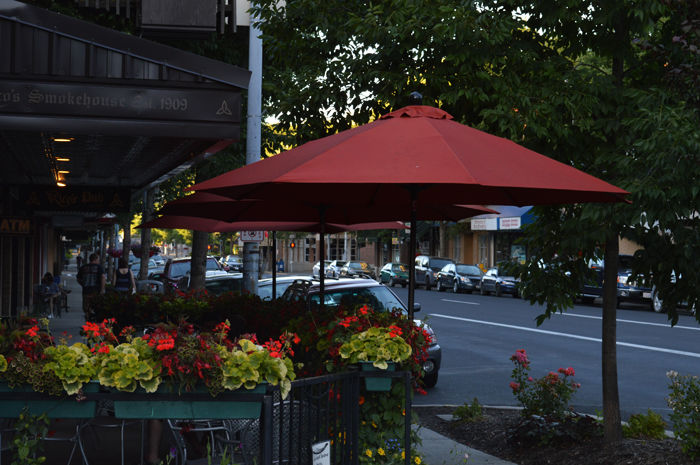“Popping Washington State University’s bubble”
Much of the cultural life of Pullman revolves around the artists and events hosted by the university.
July 6, 2016
For out-of-towners, Pullman is often thought to be a city that exists not due to its own merits but only because of the state campus that sprawls across its northeastern quadrant.
In a column from the Moscow-Pullman Daily News called “Popping Washington State University’s bubble,” columnist Chuck Pezeshki argues that WSU’s isolated campus is holding not only the community back, but also the university.
Pezeshki’s solution? Pullman should become more like Boulder, Colorado, in the spirit of forming a next-generation community instead of letting Pullman remain a one-horse town.
In this case, I find quite a few issues with Pezeshki’s comparison of the two cities.
First is the simple issue of population: the 2015 city profile published by Boulder’s city government estimates 104,810 people live in the city.
That is nearly three times the number of people living in Pullman, creating a huge disparity in wealth potential and human resources.
Second, mountainous Colorado is a far cry from the Palouse.
Having been to Boulder for a Residence Hall Association national conference in June 2012, I can testify that Boulder feels like a giant suburb: lots of big-city comforts coupled with the wide, clean air of the Rockies.
The Palouse, however, is simply more rural than Boulder.
Third, according to the 2015 Boulder Community Profile, the household median annual income for the city is $89,500.
Sterling’s Best Places estimates that figure as $72,321 for Pullman.
This is enough of a disparity to create massive differences in the look, feel and potential of the city.
To be fair, the Moscow-Pullman Daily News column talks more about breaking the barrier between campus and downtown than making Pullman into a Boulder carbon copy.
However, it is exceptionally difficult to imagine a Pullman without WSU.
Cougars might have a bubble that keeps them from engaging with the area at large, but one first needs an area at large to engage with.
Boulder is much more accessible to the country than Pullman.
It is only 30 miles from Denver, meaning there is easy access to one of the larger cities of the United States.
The closest “big city” to Pullman is Spokane, and even then Spokane sometimes feels regional.
Otherwise, we have Moscow, but as wonderful as Moscow is, it cannot begin to compare to the access Boulder has.
Pezeshki also argues about encouraging greater community participation among Cougars.
This becomes difficult when WSU students, staff and faculty make up a disproportionate part of that community.
Having lived in Pullman during the summer, I can attest to the city markedly slowing down when students go home for the year.
The town doesn’t pack up like a circus, but business hours shrink, churches change service times and life is slower and quieter.
Much of the cultural life of Pullman revolves around the artists and events hosted by the university.
I will grant that Pezeshki’s bone of contention about WSU students not having the interests of Pullman at heart is in some cases valid – the excuse often heard that Pullman is a “college town” to justify the littering, inexcusable amount of broken glass around Greek Row and the sometimes deplorable conditions of living spaces.
In many ways, Cougs and College Hill could stand to get their act better together.
I am not trying to disparage the Palouse – it’s a beautiful region rich in its own resources, culture and unique opportunities – but if the author had picked another smaller, rural university locality like Missoula, Montana, the comparison might have been easier to swallow.
Simply put, members of the WSU family should look to better Pullman because we love Pullman and see in its own unique qualities boundless potential, not because we want to become like a distant city in the mountains.
Tyler Laferriere is a graduate student pursuing his master’s in economics from Phoenix, Arizona. He can be contacted at 335-2290 or by [email protected]. The opinions expressed in this column are not necessarily those of the staff of The Daily Evergreen or those of The Office of Student Media.

















